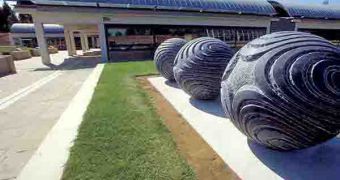Though there are more than 1,000 seed banks in the world, the MSBP is different because it contains not only seed specimens belonging to agricultural crops, but also those of tropical and exotic species, which could ensure the resurrection of these plants in the aftermath of a “doomsday” event.
However, even projects of this importance cannot go unaffected by the current global financial crisis, and the MSBP currently suffers from a lack of funding, which could mean its downfall by the end of 2009.
"This is the world's biodiversity hot spot. That's important for mankind. But if the funding situation doesn't improve, we'll have to stop collecting. We have not raised the kind of money we had hoped to at this point," argues Millennium Seed Bank Project director Paul Smith, while adding that philanthropic aids have also decreased during the last period, given the fact that the crisis is constantly spreading.
Inside the project's buildings, a constant temperature of -4 degrees Fahrenheit ensures that the metabolic rate of each type of seeds doesn't exceed a certain limit. This allows for them to be kept for a longer period of time and prevents them from degenerating into useless genetic material, seeing how the whole purpose of the project is to keep them alive.
The facility that houses the MSBP is an ultra-modern bunker, situated about 30 miles south of London, and its constructors say that it's capable of keeping out nuclear fallouts and of resisting a direct impact from an airliner. Because the inside is cooled at such a low temperature, important safety measures were set in place, so as to prevent any of the scientists from getting trapped inside the freezers and losing core temperature within 15 minutes.
"The potential value of this project is almost unfathomable. If you look at the way the world is going, it's inevitable that genetic material will be lost. The big fear is that, if global warming comes sooner rather than later, it may be too late to conserve the material," says the head of the Genetics Resources Unit at the University of Warwick in England, David Astley, who confirms that the MSBP is the world's largest such undertaking.

 14 DAY TRIAL //
14 DAY TRIAL //